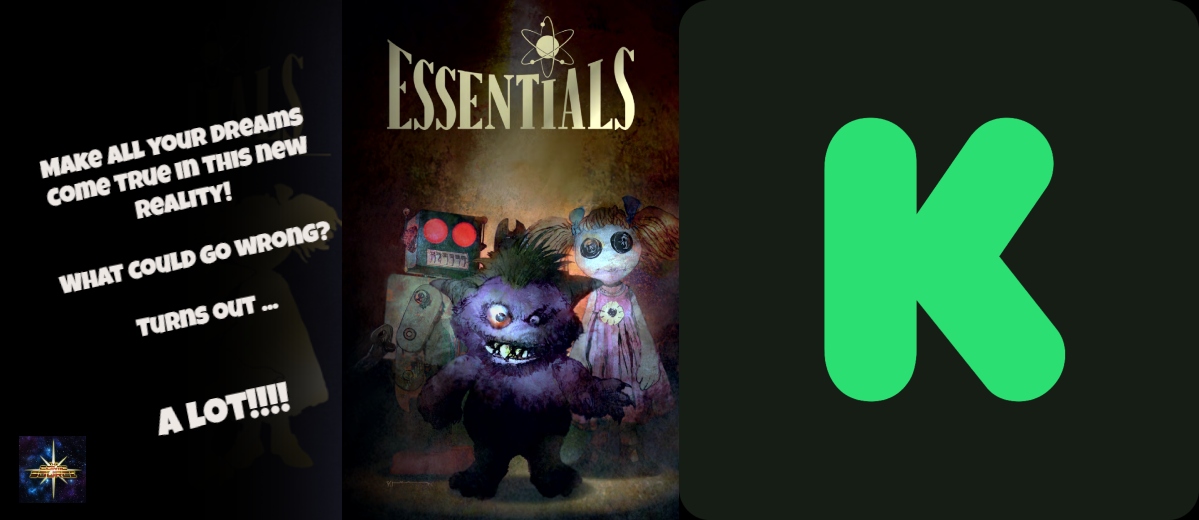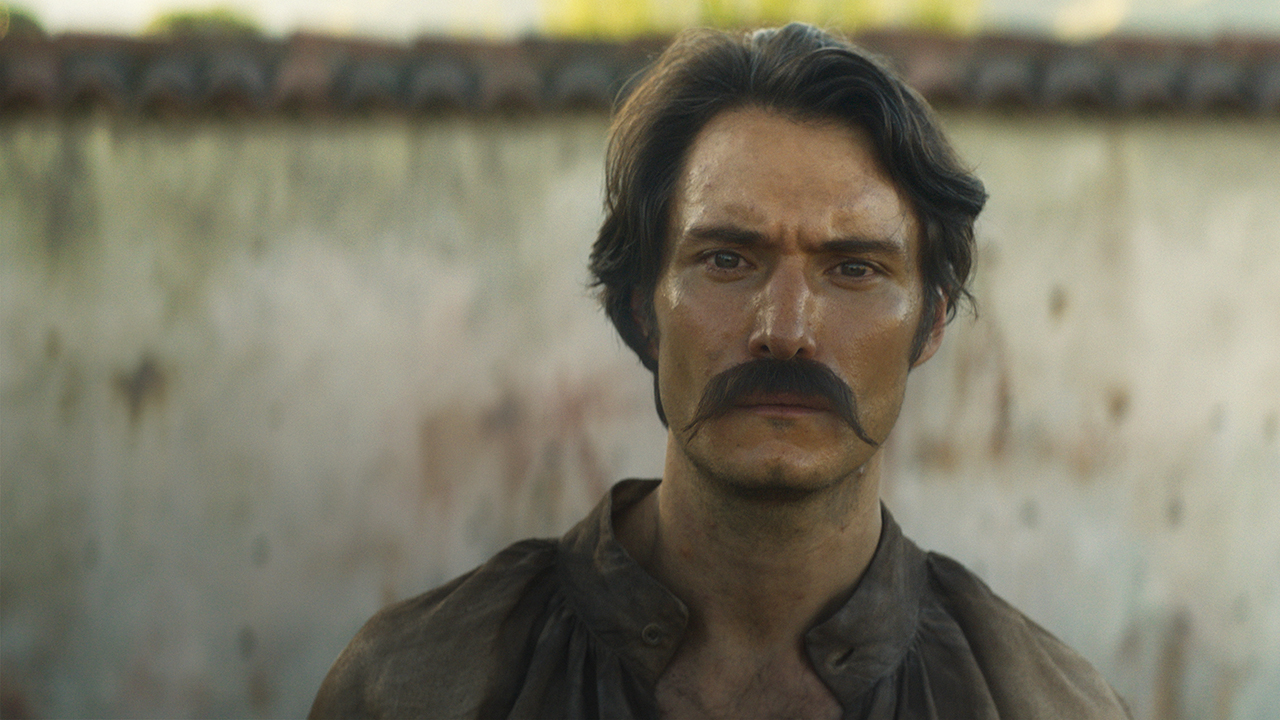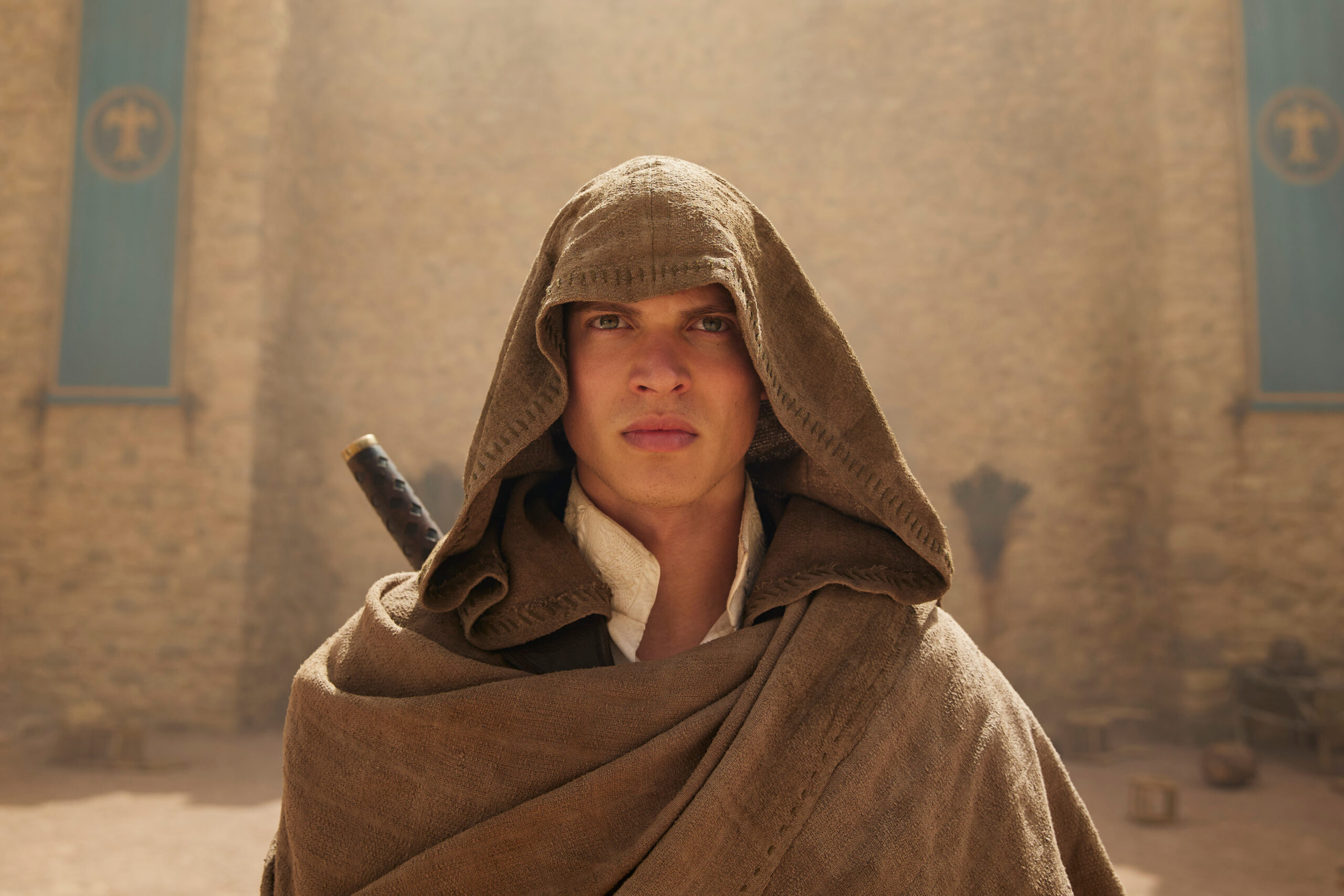![]()
In one of the more powerful films at the upcoming Los Angeles Film Festival, the racially-charged drama “Supremacy†will make its world premiere.
The movie headlines Danny Glover and Joe Anderson in this indie feature, which is based on a true story about a recently-paroled white supremacist taking a black family hostage after killing a police officer.
Other members in this powerful cast included Dawn Oliveri, Derek Luke, Lela Rochon and Mahershala Ali.
Latino-Review had an exclusive phone interview with director Deon Taylor before the festival. We discussed many different topics, including the true story, racial themes, humanization and putting the entire production together.
“Supremacy†will premiere tomorrow at the Los Angeles Film Festival’s L.A. MUSE section, films by up-and-coming filmmakers that take place, filmed or inspired by the city of Los Angeles. For tickets, visit www.lafilmfest.com.
Read the full interview below.
Latino-Review: What made you attracted to this movie, “Supremacy?â€
Deon Taylor: I was floating around as an independent filmmaker, mainly in the horror space. I shot this film, “Chain Letter,†a few years ago. It didn’t hit me the way I wanted to after I was done. So I was looking for a more serious project to get into. The only problem was that I couldn’t find anything that would motivate me.
I ended up sitting down with Vincent Cirrincione, who was a fan of my work at the time. He was like, “Man, we got to find you some material. As filmmaker, we need to really challenge you.†He said that he got this script, but he didn’t know if it’s the right thing for me to make right now. It’s one of those movies that could go either way.
So I said, “Alright. Give it to me.†He did. I remembered flying from LA back to Sacramento and I read the script on the plane. I said, “Golly! This is insane.â€
I called him immediately after I landed. I said, “This is a very intense movie. Is this a true story?â€
And he said, “Yes, it’s a true story.†So I told him to give me a few more days to wrap my head around the project on where I could come from and the angle would be as a director. A film like this is so racially charged that it’s just racially insane.
After reading it a couple more times I said to myself that I got it. I fell in love with this movie. So I called him back and made the deal. He said to me, “Alright. Now you just got to find the money to make it.†[Laughter]
All I had to do is find the money to make a movie about a white supremacist who takes a house hostage. That’s how it started. I was very passionate about it. I ended up finding just about a million dollars to make the film. I really, really believed in the movie and on what it meant. That’s how it went down.
Latino-Review: Now you did mention that it was inspired by actual events. What part of it was actually inspired by these events?
Deon Taylor: The entire film actually did happen. There was a high-ranking official in the brotherhood. He was released from the Pelican Bay Prison. About nine hours after he was released, he actually killed a cop during a routine stop. From there, he ran away and took a house hostage. The entire film was based on that.
The only reason it wasn’t based entirely on a true story, but of actual events—I didn’t really have enough time with Tully, who is on death row. So I couldn’t get the entire story. We only went with the family’s perspective for the film. That’s all we can do. But, yes, it’s a true story.
Latino-Review: Wow. So you did more research by communicating with the family themselves? These are the accounts on what actually happened?
Deon Taylor: I sat down with the family. I had an incredible conversation with everything that went down. I met with the family again about the LA Film Festival. That’s how I got the story.
Latino-Review: How did you try to balance the racism and bigotry without going overboard with it?
Deon Taylor: Gig, between me and you, that’s the challenge. For me, being a black filmmaker, I had to shoot this film not in the voice of a black male. I was shooting this film from the perspective of a white supremacist. That was the challenge in doing this film. Although the story is layered with racism, at its heart, it’s a story about two individuals. That would be between Joe Anderson and Danny Glover. So when I really approached the movie, I looked it that way first. It’s about two people who had led two different lives. Here’s one guy, with Joe Anderson, who had been in prison and learned this behavior. Then here’s another guy, Danny Glover, who was a dysfunctional black man during his entire life and with just as many hang ups. He’s just as racist, but only in a different light.
I asked, “How did these guys come together?†So I shot the film that perspective. I really believed in people. Ignorance is really a learned behavior. Violence is a learned behavior. No one is born to say that I hate black people or I hate white people. No one is born that way.
That’s how I want to approach the film. If I can somehow peel back the layers throughout the film to show the characters at different breaking points.
It was very scary. As an independent filmmaker working with no money, it was a very challenging movie that you just don’t want to mess up. You don’t want people to yell out, “Why did he say that?†I really wanted to shoot this so people could look outside beyond the race.
Latino-Review: Wasn’t it uncomfortable for Joe Anderson and Dawn Olivieri to use the n-word throughout the entire movie?
Deon Taylor: Yeah, it was. For me, day one was really tough. Here on the set, you have a young black teenager, a young black baby, and Danny Glover—I’ve asked them to put a gun in everyone’s face and call them a “nigger.â€
It was very difficult to work that. It took me a lot of time to sit with all the characters one-on-one and say, “Hey, this is what we’re doing.†These were the things that really happened and we needed the performers to speak the real violence and energy that came across from these people.
It took us a few days, but we finally got into a rhythm. It’s really by manipulating the script so we can shoot out of order. I wanted to get all the heavy lifting out of the way first. I wanted to get the gun-toting in-your-face moments [out of the way first]. I wanted for Joe and Dawn to be in the place, where they went home at night, they didn’t sleep well.
I wanted it to come across that real on screen. I promised that they’ll only have a few days of that and come out in a very happy place. And they did, Gig. I thank God every day to get talent like that who worked hard.
Latino-Review: For the white supremacists, they are usually portrayed as really crazy psychopaths in movies. You did a great job in balancing them out to more humanize in which they actually changed due to this crisis. How did you manage to pull that off?
Deon Taylor: That was the part on what we were talking about earlier. That was the delicate balance. I was looking at the character through innocent eyes.
What’s crazy is that no matter what mistake one makes in life—there’s always a way to repent for that mistake. It allows the one to become a different person. For this guy, as I was doing the research, I wondered on why he didn’t kill that whole family? So here’s a guy in jail already for attempted murder and just killed a cop. The police had no idea on where he was at.
There were no real answers and fate came in to help out that family. I had to take in the perspective on what happened with this guy. Basically, the old man and the white supremacist created a bond. Through the bond, Danny Glover’s character did exactly on what kidnapped victims must do—is to humanize yourself. So in the film, he started to speak to [his kidnapper] about prison politics. Yes, sir. Can I please? And the line to me that did it was “Please. May I go to the bathroom?†He let him go to the bathroom while pointing a gun at him. And then he realized like “What can this man possibly do to me?†That was one of the moments when we felt like we had humanized the character.
Latino-Review: Do you have any future projects that you like to talk about for us?
Deon Taylor: I am working on a few things right now. One of the things is a project called, “Free Agents.†It’s a story that goes into the heart of a group of professional football players. It tells the story on what they go through and where they come from. Basically the humble beginnings from the low income houses to these superstars without guarantee contracts, but the world thinks they have all this money. I’m getting ready to do this story next with [producers] Roxanne Avent and Shannon McIntosh. I will be up with this film until later on this year.
And then I barely am looking into doing a Huey Newton story. So yeah, I’m actively pushing myself as far as I can. And those things are what I’m working on.
Latino-Review: Perfect. It’s been a pleasure speaking with you Deon. This is a great conversation.
Deon Taylor: Thank you.
“Supremacy†will premiere tomorrow at the Los Angeles Film Festival’s L.A. MUSE section, films by up-and-coming filmmakers that take place, filmed or inspired by the city of Los Angeles. For tickets, visit www.lafilmfest.com.
Source: Latino-Review
![]()
Director Deon Taylor

 FOR FANBOYS, BY FANBOYS
Have you checked out LRM Online’s official podcasts and videos on The Genreverse Podcast Network? Available on YouTube and all your favorite podcast apps, This multimedia empire includes The Daily CoG, Breaking Geek Radio: The Podcast, GeekScholars Movie News, Anime-Versal Review Podcast, and our Star Wars dedicated podcast The Cantina. Check it out by listening on all your favorite podcast apps, or watching on YouTube!
Subscribe on: Apple Podcasts | Spotify | SoundCloud | Stitcher | Google Play
FOR FANBOYS, BY FANBOYS
Have you checked out LRM Online’s official podcasts and videos on The Genreverse Podcast Network? Available on YouTube and all your favorite podcast apps, This multimedia empire includes The Daily CoG, Breaking Geek Radio: The Podcast, GeekScholars Movie News, Anime-Versal Review Podcast, and our Star Wars dedicated podcast The Cantina. Check it out by listening on all your favorite podcast apps, or watching on YouTube!
Subscribe on: Apple Podcasts | Spotify | SoundCloud | Stitcher | Google Play



